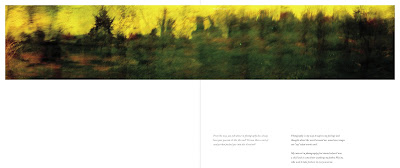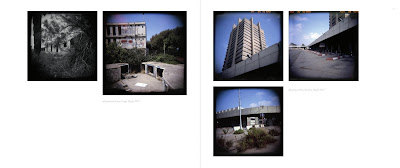But who will
be the sacred voices of a future motivated by rebellion against conformity? Who
will ruin memory's death festival with truer accusations against enemy of our
collective soul? And in a new anthology - Voice
From My Clan, writings by contemporary African storytellers have been
compiled to provide a pond for re-collective narratives which represent a
holistic memory that is being carried forward from a war-torn Africa of
yesteryears. These sobering stories mirror a vast array of social experiences
explored with clear and diverse literary styles, clad in a language akin of innocence’s
new-born observation, while hurling the most brutal truths about the trek of a
colonised people's trauma and psychologically engineered fears and rages.
A retelling
of mythological themes seems to be the thread that weaves the collection's
tapestry through various cultures and socio-political phenomena. From a "near-drowning at the forbidden side of
a river", the miserly mysteries of initiation ceremonies, to the
consequences of "discovering a sacred fish"; all these syllables of a
coded language are tapping into reserves of our naturally confronted mortality.
Easy
categorization of the writers and their writing is impossible due to the
multiplicity of their perspectives. And their works serve not only to
essentially insert African culture into western literary traditions but to
affirm it's essence in the literary traditions of the species. Yet, a plethora
of pitfalls are still encountered by contemporary African literature when
compelled to express itself in the English language. And coupled with the
history associated with the drive for universalism by most writers, most often
formed around the choice of this language, a new compartmentization through language
emerges as the primary enemy of the diversification of literary practice in
Africa of today.
With this in
mind, and still commending the talent that bestowed such narrative treasures
for our collective understanding, I would truly hope that the anthology reaches
as many linguistic landscapes as it has captured in the compilation of short
stories. Undeniably, a slow, insidious ignorance among the new generation of
African writers has inadvertently eroded the folkloric narrative method of
knowledge transmission in recent narratives, and this has had a detrimental
effect on a variety of creative disciplines which draw from the literary
tradition.
Through lack
of story, observable is how contemporary cinema from the continent has become
redundant and void of depth to an extend that experimentalism has been employed
to mask a deprived narrative consistency, we find African identities being
vicariously represented without authenticity that is both visible and
functional to its people.
Fortunately,
this anthology asserts the existence of a literary gaze capacitated to
resuscitate a variety of imaginative experiences which can shine through the
entire spectrum of creative practices for the posterity of unadulterated African
expression. The simplicity of a child’s tyrannical depiction of events in BOFF and the femininely congenial Daughter's Pride, offer rich literary
devices unique to the writer's experiences, yet the images invoked in the
reader’s mind construct a symbolism which should be of interest to those keen
on creating superb cinematic representation of the stories.
Adoption and
adaptation of such crafted depositories of communal experiences into films
therefore becomes the New African Filmmaker’s benchmark of honouring indigenous
people’s indigenous oral technologies and traditions. In this light, I infer to
propose that Voices From My Clan form
part of inaugural anthologies to be adapted for film specifically, thus cementing
the stories into a global digital library that goes beyond the word and onto a
projection screen; fusing media to communicate with a future that might never
require the art of reading.
It is
critical that a comprehensive analysis of themes prevalent in these stories be
afforded meticulous attention within an accessible discussion of the social and
political contexts in which they arose. I hope this introductory piece can
therefore spark a discussion around sustenance of longevity of such tales and fables,
while issues of translation, would restore and bestow visibility for the
stories. Induction into school curricula is another matter to be academically
explored. In conclusion, the "age-bracket" of the writers in this volume proves
adequately that an incontestable reservoir of new voices is growing, producing a
modern, liberated and interrogative African literature that transcends age
groups, gender politics, cultural borders, as well as socio-ethical constructs.
And
furthermore, the majority of the writers being born post-colonialism and safe
from its various unmourned faces all over the continent, they are
shielded by character to deconstruct all forces of rational signification and
say things which are considered taboo by virtue of a certain lack of
experiential bias. This can perhaps prove useful for the concern of the new
writer, who does not feel narrowly concerned with political motivations in
their literature, but an expression of individual voices engaged in storage and
arrangement of knowledge, which is equivalent to personal revolutionary actions.
Paul Zisiwe





































































































